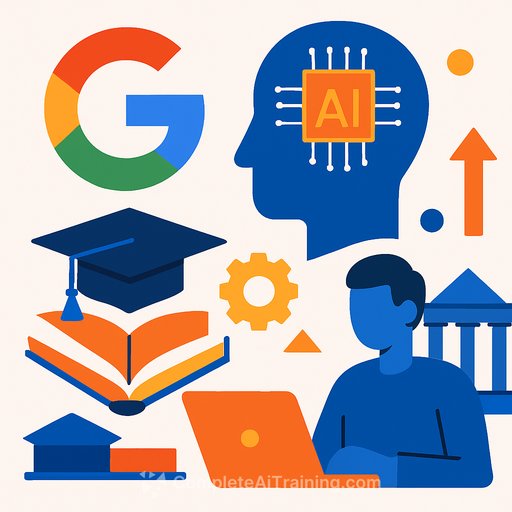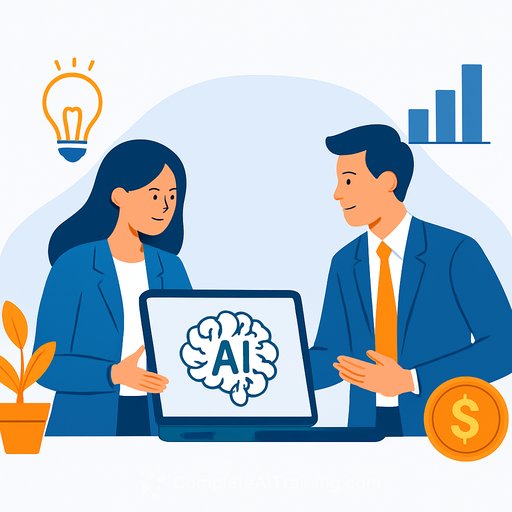Google’s $1 Billion Investment in AI Education
Alphabet Inc., Google's parent company, has committed $1 billion over three years to support AI education and tools in U.S. higher education institutions and nonprofits. This initiative, announced on August 6, focuses on providing students and educators with advanced AI resources to address the growing skills gap in fields like healthcare and finance.
The funding includes grants, free access to Google’s AI tools such as Gemini, and infrastructure support for more than 100 universities. It's one of the largest corporate investments aimed at improving AI literacy to date.
Details of the Initiative
Google plans to distribute grants, offer cloud credits, and provide specialized courses via its Google Cloud Skills Boost platform. The program initially targets accredited nonprofit colleges with plans to expand nationwide, putting an emphasis on including underserved communities.
While this is a philanthropic effort, it also serves as a strategic move to build a workforce skilled in Google's AI ecosystem, potentially securing future users and talent.
Strategic Reasons Behind Google’s AI Education Push
This investment fits into Alphabet’s broader AI strategy, which includes billions spent on research and acquisitions. AI-driven growth in cloud services recently surged 35%, reflecting the rising importance of AI in Google's revenue streams.
By focusing on education, Google addresses competitive pressure from rivals like OpenAI and Microsoft and seeks to ease regulatory concerns related to AI’s societal impacts, including job displacement and ethical questions.
Industry experts see this as a smart effort to develop talent aligned with Google’s technologies. Discussions on social platforms highlight the potential for this funding to reduce AI development costs and accelerate innovation. This initiative builds on Google’s previous educational programs but on a much larger scale within AI.
Implementation and Partnerships
Google will collaborate with institutions such as the University of California system and historically Black colleges, supporting AI curricula and research grants. The funding includes direct cash support, tool access, and faculty training to educate millions on AI basics.
This effort could significantly impact fields like drug discovery, where Google's AlphaFold has already earned acclaim.
Concerns and Criticism
Some educators worry the program might favor Google's proprietary technologies, potentially limiting innovation from open-source AI alternatives. Critics suggest the initiative may aim more at creating loyal customers than purely advancing education.
These views are echoed in analyses that see the investment as savvy public relations amid ongoing antitrust scrutiny.
Implications for Education and Technology
This $1 billion pledge may influence how universities integrate AI, encouraging programs that combine computer science with ethics and policy studies.
Google’s recent earnings showed a 14% revenue increase partly driven by AI-powered ads, highlighting the financial strength behind such investments. The move signals Google's focus on developing human capital as a key to maintaining AI leadership.
Competitors like Microsoft are also expanding AI education efforts, indicating a competitive environment for influencing academia. Success will depend on measurable outcomes such as increased AI graduation rates and diverse participation, which Google has committed to tracking openly.
Challenges and Future Outlook
Ensuring equitable fund distribution is a major challenge, as smaller institutions may be overshadowed by more prominent universities. Regulatory scrutiny, especially from the Department of Justice, could affect the program’s rollout.
Despite these challenges, Google’s commitment to AI investment remains strong, as shown by its $100 billion-plus spending plan. This initiative positions Alphabet at a crossroads of innovation and social responsibility, with potential benefits in talent acquisition and brand loyalty.
As AI continues to influence multiple sectors, collaborations between corporations and academia like this one may define future technological progress, combining business interests with educational goals.
For educators interested in expanding AI skills and resources, exploring comprehensive AI course offerings can be valuable. Platforms like Complete AI Training provide a variety of courses that align with current industry trends and tools.
Your membership also unlocks:





